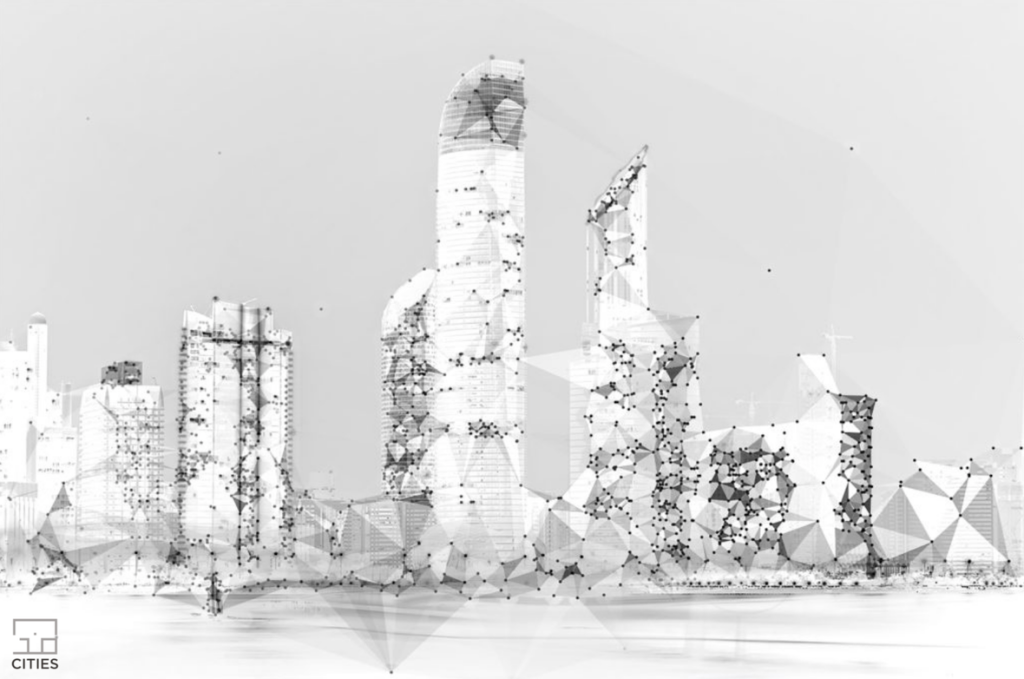
CITIES Research
The Center for Interacting Urban Networks (CITIES) at New York University Abu Dhabi (NYUAD) is an interdisciplinary research center dedicated to advance urban science and promote cutting-edge research that is translated into practical, real-world solutions for the benefit of society. Our ultimate goal is to foster sustainable, resilient, and equitable cities with a particular emphasis on Abu Dhabi and the UAE.
This newsletter offers an overview of CITIES’ ongoing research efforts and initiatives for a more sustainable approach to the way we live our cities and interact with the built environment. Below are two projects showcasing some of the work we are doing on Artificial Intelligence (AI), aiming to build resilient and explainable systems.

From Vulnerability to Resilience: Fortifying Autonomous Vehicle AI Against Adversarial Threats
Saif Eddin Jabari, Associate Professor of Civil and Urban Engineering, CITIES Principal Investigator
Autonomous vehicles rely on artificial intelligence (AI) to process sensor data, understand their surroundings, and make real-time driving decisions. AI algorithms facilitate tasks like object detection and path planning, ensuring safe navigation. However, manipulated inputs can deceive AI models, leading to misclassification of objects, unsafe routing, and compromised vehicle control, jeopardizing the safety and reliability of autonomous driving systems. Current research in CITIES investigates what makes AI vulnerable to adversarial attacks and developing advanced adversarial training tools.
Deep Neural Networks (DNNs) learn approximately linear relationships. Despite the highly nonlinear relationship between loss functions and network parameters, the relationship between loss functions and inputs is nearly linear or piecewise linear. Adversarial attacks exploit this linearity to trick well-trained DNNs into misclassifying inputs altered with imperceptible noise. CITIES research explores this linearity conjecture, illustrating that linear operators can replace DNN layers without sacrificing prediction quality. This insight into the inner workings of neural networks will enable the crafting of effective defenses against adversarial attacks.
Generalization is a double-edged sword. A DNN that generalizes well performs accurately on unseen data, making it robust and effective. However, this also means that if an adversary develops a surrogate model that generalizes similarly, they can craft effective attacks against the original model. CITIES researchers have introduced a generalized p-norm-based adversarial training framework that is computationally efficient and mitigates catastrophic overfitting, enhancing the model’s robustness against adversarial attacks.
Correcting inputs. Graph neural networks help self-driving cars understand complex relationships in traffic, leading to better navigation and improved decision-making. Researchers at CITIES have shown that error-correcting codes can successfully reconstruct graphs subjected to subtle topological perturbations unknown to the user. The technique is robust to perturbations in graphs of varying types and sizes and to random and non-random attacks.

Knowledge Graph-Driven AI: Towards Transparent and Explainable Systems
Djellel Difallah, Assistant Professor of Computer Science, NYU Abu Dhabi; CITIES Project Investigato
The rapid developments in artificial intelligence, particularly in content generation, have revolutionized various fields of research and business. This transformation has been driven by breakthroughs in neural network architectures, scalable hardware, large datasets, and human supervision. While popular AI tools such as Large Language Models (LLMs) have demonstrated impressive capabilities in interactive and controlled settings, their integration into large-scale, mission-critical systems—like those envisioned for Intelligent Smart Cities systems—remains challenging due to the non-deterministic nature of these models, their tendency to hallucinate, and the fact that they operate as black-box systems which lack transparency.
Our research focuses on developing AI systems that prioritize verifiability and explainability. One approach we are exploring is Retrieval Augmented Generation (RAG) which improves the transparency and reliability of LLMs by anchoring the reasoning process in authoritative databases and generating a series of interpretable steps. For instance, in our BeamQA project, a question-answering system reasons over a Knowledge Graph, a data structure of entities linked with relationships. The model interprets the question as a path of connections leading to the candidate answers. We’re also exploring how LLMs can navigate and make sense of the complex structure within these knowledge graphs. Additionally, we are developing explainability methods for Graph Neural Networks (GNNs), which are powerful models designed for graph-based tasks. While GNNs excel at tasks like node classification or link prediction, they often lack transparency in their decision-making process. To address this, we have developed XG-Explainer, a tool that can be trained on a black-box GNN to identify the patterns that contribute to specific predictions.
To put our research into practice relevant to the region, we are developing CityGraph, a platform designed to capture and organize data related to urban environments. This initiative, in collaboration with Prof. Etienne Wasmer, seeks to build a comprehensive database for sharing and contributing data about cities in the UAE, drawing from open data sources and public knowledge bases, and eventually using AI tools for studying various societal questions. CityGraph features various interactive tools such as CityMap for GIS data visualization, Visualize for dataset publishing, and CityChat for natural language querying of structured data.
CITIES Post-Graduation Research Fellowship
The CITIES Post-Graduation Research Fellowship at NYU Abu Dhabi is crafted to support outstanding graduating seniors who exhibit a keen interest in academia. This competitive one-year fellowship at NYUAD serves as a platform to nurture innovative research endeavors, retain exceptional academic talent within the region, and foster the growth of research in the UAE. It offers a unique opportunity for students to delve into diverse research avenues and explore possibilities for graduate studies, particularly in urban science, spanning disciplines such as Engineering, Computer Science, Sociology, History, and the Arts.
Below you can learn about the projects of the two new exceptional Fellows who are joining CITIES for the academic year 2024-2025:
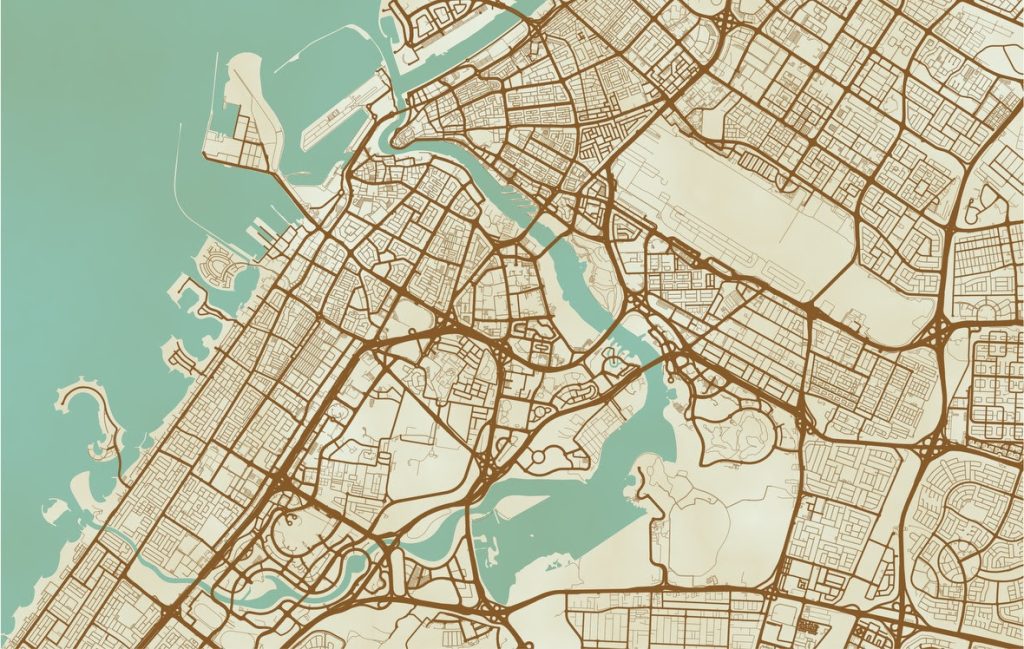
Evaluating the Influence of Golden Visa Investment Schemes on Dubai’s Real Estate Sector
Ella Goeckner-Wald, Bachelors of Economics & Political Science
This project focuses on the UAE’s Golden Visa program launched in 2019, for which one of the qualifying factors is investment in property worth at least 2 million AED. There are three broad questions that we seek to answer throughout this year:
- Are property prices manipulated to become eligible for the golden visa in the UAE?
- Do we observe changes in neighborhoods with a higher density of houses above the price limit of the Golden Visa real estate investor requirement (2 million AED)?
- What is the willingness to pay for a golden visa, and how does it change over time?
As many countries pursue residency-by-investment schemes to develop their economies, it is important to engage in thorough research to understand the unintended consequences of these types of policies. The ultimate goal of CITIES is to “foster sustainable, resilient, and equitable cities”. With this project, we will examine a phenomenon that has wide-reaching implications for sustainability and resiliency by examining neighborhood development. It will also allow us to explore equity by understanding the impact of manipulation of the housing market on households of different income levels.
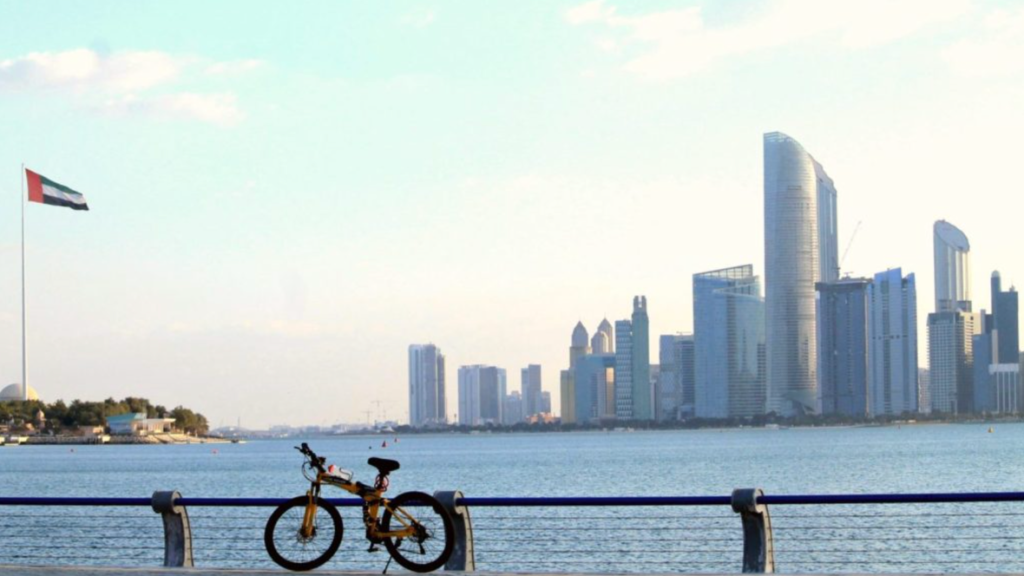
Sustainable Mobility: Investigating Urban Infrastructure Perspectives and Challenges in Abu Dhabi
Xander Christou, Bachelors of Arts in Social Research & Public Policy
This project will build upon Alexander Christou’s previous research from his Senior Capstone, “Biking Under the Sun: Investigating the Growth and Challenges of Cycling in Abu Dhabi.” As a CITIES’ Post-Graduation Research Fellow, Alexander will further explore how people navigate Abu Dhabi on two wheels, expanding his focus from cycling to include scooters as well.
This project will utilize both quantitative and qualitative research methods to create a comparative study between cycling habits and infrastructure in Abu Dhabi and Dubai, resulting in the first comprehensive cycling study in the Arabian Peninsula. At a time when Abu Dhabi is expanding its infrastructure following its “UCI Bike City” designation, this project will provide valuable insights for policy-makers, influencing decisions regarding urban spaces and the challenges of mobility. While current infrastructure development often follows a top-down approach, this project will offer bottom-up solutions that directly benefit Abu Dhabi residents and authorities.
This research will contribute significantly to the literature on Bike Cities and cycling usage, offering a deeper understanding of the city’s urban landscape and its interdependencies for a more sustainable future.
CITIES Updated Website
We are thrilled to announce the launch of our newly updated website, showcasing a refreshed design that embodies our commitment to innovation and user experience. Our redesigned website features a modern layout, streamlined navigation, and enhanced functionality, making it easier than ever for visitors to explore our offerings and engage with our content.
Let us know below if you like the new design:
👍👎
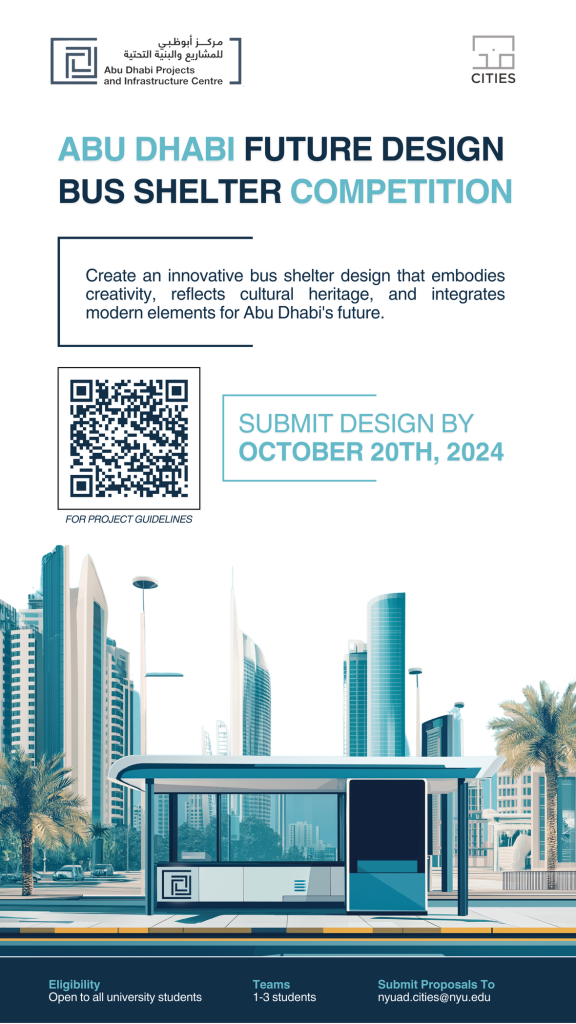
In collaboration with CITIES, NYUAD has been invited by the Abu Dhabi Projects and Infrastructure Center (ADPIC) to participate in an innovative design competition to create next-generation bus shelters for Abu Dhabi.
This competition aims to engage university students in creating innovative and practical designs that enhance the urban environment and improve the computer experience. This prestigious competition involves five universities, each submitting 20 design proposals. We seek motivated students to create the best design proposals representing our university.
To learn about the project guidelines, click here.
Objective:
– To design a bus shelter that embodies creativity, reflects cultural heritage, and incorporates modern elements reflecting Abu Dhabi’s future development.
Eligibility:
– Open to all university students.
– Teams can consist of one to three students.
If you are interested in participating in this initiative, please submit your proposal by October 20th, 2024 to nyuad.cities@nyu.edu for final evaluation.
CITIES Upcoming Events
Join us for the upcoming event organized by our center:
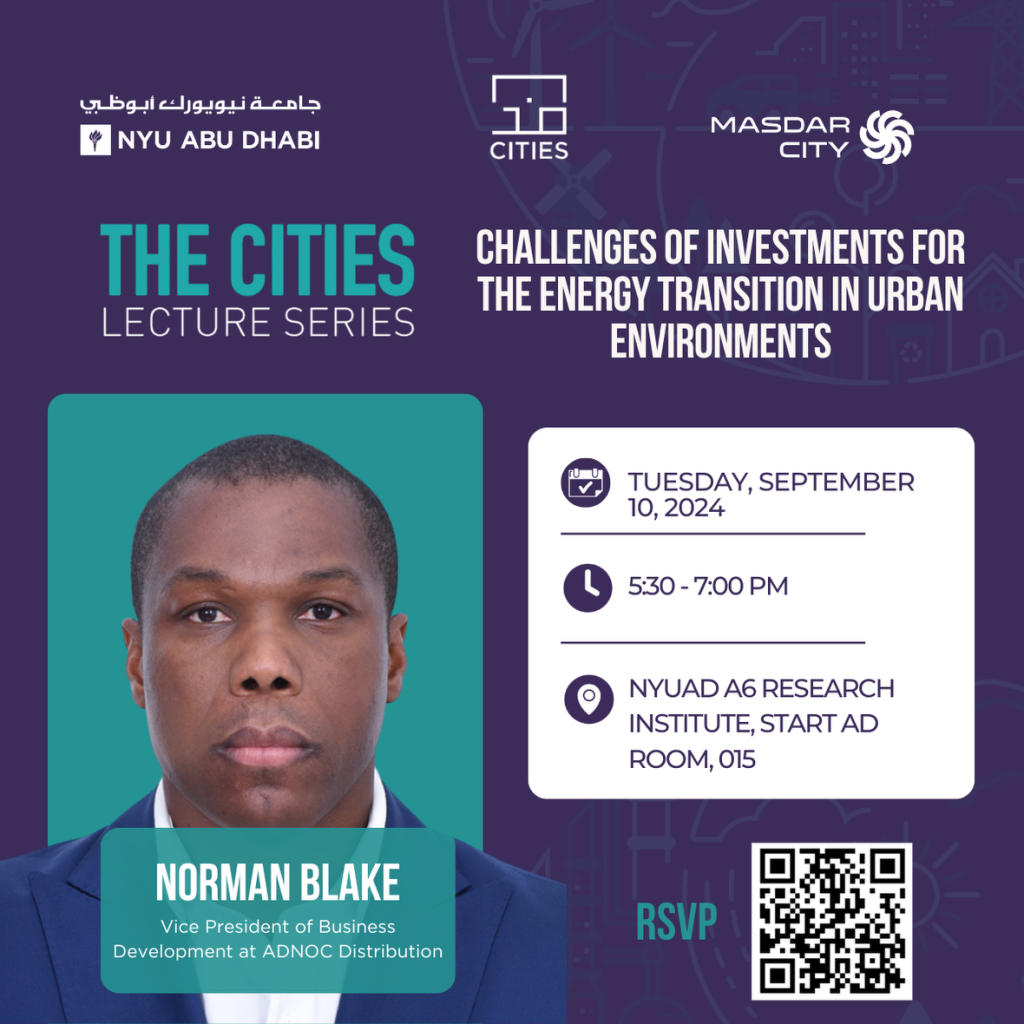
Stay tuned for the Issue #13 of our newsletter that will come out in January, 2025.
The Center for Interacting Urban Networks (CITIES) is funded by Tamkeen under the NYUAD Research Institute Award CG001.